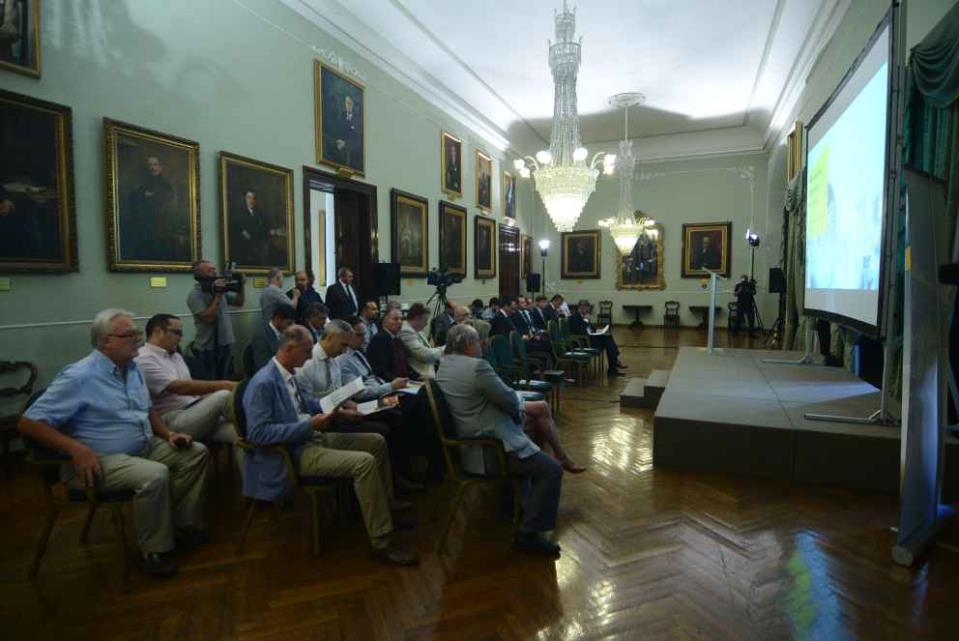EY Malta have released their proposals focusing on five areas, which they believe have potential for growth and investment on the island.
They presented their proposals during a conference at the Chamber of Commerce. EY is one of the big four financial services firms on the island. At last year's Malta Attractiveness Survey conference EY planted a number of seed policy ideas in various areas. The scope was to look beyond the current economic horizon. With input from various public and private stakeholders EY have now matured them into policy proposals The five policy areas are Fintech, Commodities trading, Logistics hubbing, Malta as a distribution centre for online purchases from Asia, and Legal immigrants.
President of the Chamber of Commerce President Anton Borg spoke of their economic vision for Malta, a document which they had previously released and where they had named 11 sectors where they believed economic success could be achieved. They advised that the country’s resources should be focused on sectors with the highest return, and that equality must be the hallmark of success. “We are more than happy to support EY in their proposals”.
He said that EY’s sectors fit in with the areas highlighted in the Chamber's own vision. He mentioned that migration has the ability to improve GDP across the EU, but this would require better integration into the EU market. “The continent is experiencing a consistent declining population”.
EY Country Managing Partner Ronald Attard said that they were encouraged by the support of the chamber in the launch of these proposals.
“These proposals are not exhaustive, but we are calling for action on these proposals. Speed is of the essence, and so is consensus at all levels”.
“We genuinely believe Fintech is positive for Malta. Unfortunately our country’s action has been slow and there is a danger of missing the boat on this sector. Other countries are moving fast. We want to work with the Chamber, the government and the opposition to make these proposals come through”.
Project Finance & Infrastructure Senior Theo Dix explained that Fintech – the use of technology to provide financial services in innovative ways - is the latest growing sector in financial services. In 2015, the UK drew in 50% of global investment in emerging Fintech: peer-to-peer lending, crowdfunding, digital currencies and blockchain, new payment technologies etc. He said that the sector is still growing and that a strong opportunity may exist for Malta to offer a stable secondary location for these companies.

For this policy area, EY Malta recommends that talent and funding shortage issues should be addressed as soon as possible. They also recommend adopting a promotion strategy for FinTech in Malta and examining partnership possibilities with other countries and corporates. They explain that a framework must be created to enable the regulator to develop ad hoc licences in new areas of opportunity, so that once identified, things can move quickly to provide companies with the stability that they need.
He also highlighted the need for constant training to be provided so that people within the industry can keep up with the pace of change. As such, the introduction of new subjects, such as coding and artificial intelligence in schools is recommended. They also suggest that specialist modules at university and collaborative partnerships with foreign universities which specialise in these fields be introduced.
As for Malta as a commodity trading hub, EY's Gilbert Guillaumier believes that Malta has the potential to tap into a market gap, by focusing on small-to-medium sized commodity traders in search of an alternative jurisdiction.
Mr Guillaumier recommends, among others, a concerted effort to attract commodity brokers and banks focussed on commodity trade finance, a review of local legislation underpinning commodity trading needs in order to create a framework aligned with internationally accepted regulations on commodity trading and a licensing regime for commodity traders and brokers.
As for Malta as a gateway for Asian e-commerce, EY’s Senior Manager Simon L. Barberi explains that Malta’s EU membership may become an asset and that Asian suppliers and European consumers still experience supply and demand mismatches in a number of areas. Malta, he said, has the potential to provide standard warehousing and distribution services as well as specialised add-on services such as data warehousing, customer care centres etc.
In this area, EY proposes streamlining administrative processes relating to customs clearance, work permit processing and immigration procedures. They also recommend, among others, setting up a returns hub in Malta given that European purchases are impacted by costly, lengthy and uncertain return policies.

Turning to new logistics, Shawn Falzon, EY Malta Executive Director said that Malta’s position just six miles away from a busy maritime trade route presents significant growth opportunities for Malta, thus providing potential benefits for players seeking to transit goods into Europe or Africa. Malta, EY said, could leverage its position and infrastructure to further consolidate its reputation as a logistics hub.
He proposed creating a one-stop-shop as the sole government interface for companies involved in logistics and ancillary businesses which could coordinate all processes such as customs, licensing, work permits etc. He also proposed specialised training programmes created through synergies between educational institutions and the industry.
EY representatives also said that a reduction in migrants has been noted over the past few years, thus meaning that for the time being, the emergency situation in Malta has subsided. “There are many, however, residing in Malta, but they have limited employment opportunities as a result of language barriers and the skills gap. The bureaucracy when it comes to work permits is also an issue."
They said that this challenge can be turned into an opportunity. "Given that Malta’s economy is growing and unemployment rates are low, many firms are already resorting to third country nationals for employment".
EY proposes a pilot project aimed at helping legal migrants who have the right and capabilities to contribute to the Maltese economy. The key idea, he said, is to attract regular immigrants with the right academic qualifications and aspirations to access EY’s Accountancy qualification programme and lay any path for them to enter the accountancy profession.
Participants, he said would be given a support package that includes free tuition as well as a laptop and adequate mentoring. Once candidates complete their participation in the project, they would be evaluated and those who pass the preliminary qualification, will be taken on by EY Malta through the normal recruitment route. They said that the EY scheme would need to be dovetailed with existing relief programmes to ensure that participants do not lose benefits they are entitled to.
Photos by Jonathan Borg